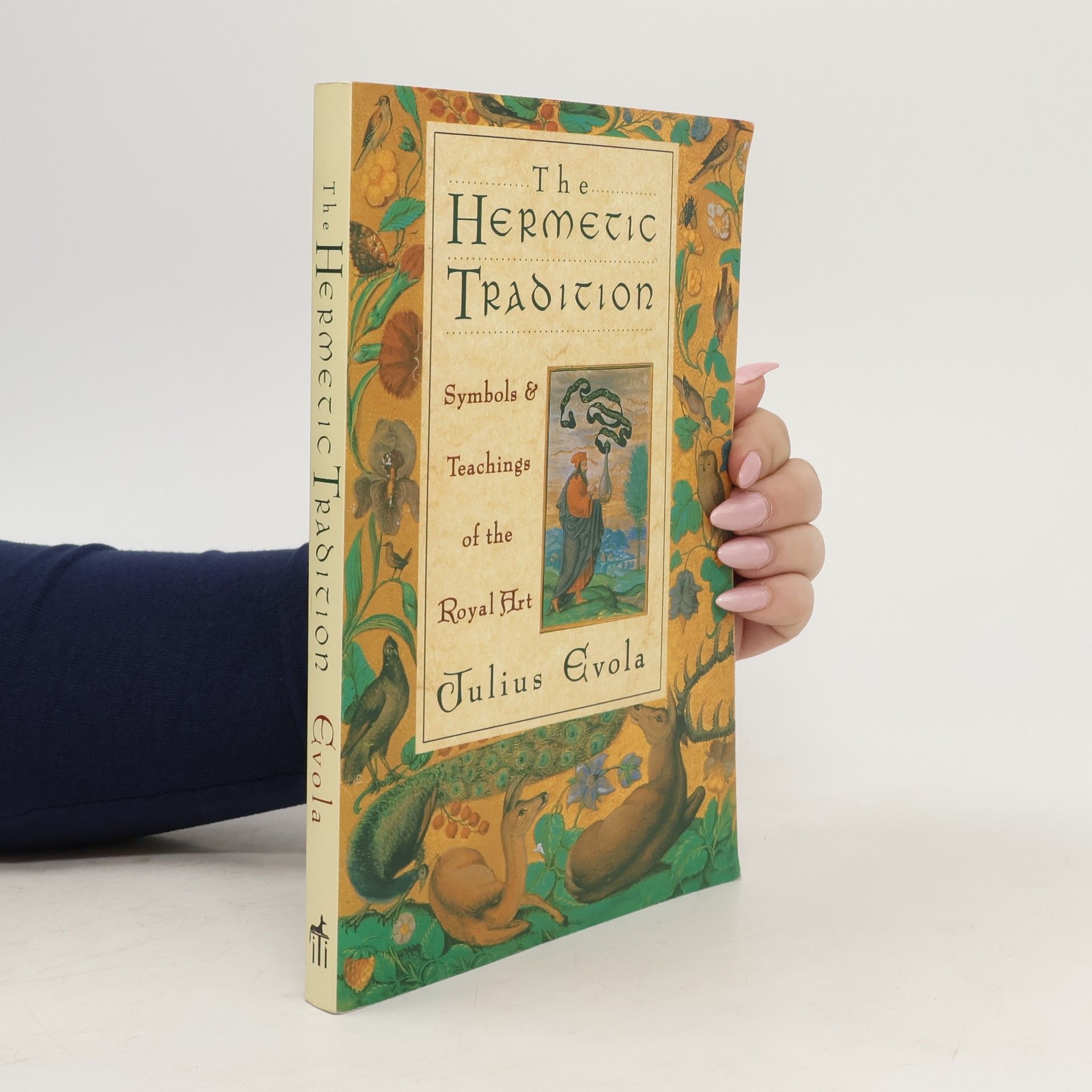Exploring a wide range of philosophical and religious traditions, the essays delve into the profound connections between Eastern and Western thought. Julius Evola examines diverse subjects such as Hinduism, Buddhism, Taoism, and Existentialism, while engaging with influential thinkers like René Guénon and Martin Heidegger. His analysis goes beyond mere comparisons, aiming to reveal a shared foundational Tradition that underpins various spiritual paths. The work invites readers to reflect on the deeper unity of human experience across cultures and philosophies.
Julius Evola Libros
Julius Evola fue un filósofo italiano cuyo pensamiento representa uno de los sistemas antiegalitarios, antiliberales y antidemocráticos más radicales y consistentes del siglo XX. Su obra es una mezcla única de idealismo alemán, doctrinas orientales y tradicionalismo. Evola poseía un profundo conocimiento e interés en el esoterismo y el ocultismo, lo que se refleja en su perspectiva filosófica. Sus ideas continúan influyendo en los movimientos neofascistas contemporáneos.







The Metaphysics of War is a collection of sixteen essays by Evola, published in various periodicals in the years 1935-1950.
Authentic initiatic practices, rituals, and wisdom collected by the UR Group
The Doctrine of the Awakening
- 272 páginas
- 10 horas de lectura
Italian philosopher Julius Evola pares away centuries of adaptations to reveal Buddhist practice in its original context. Most surprisingly, he argues that the widespread belief in reincarnation is not an original Buddhist tenet. Evola presents actual practices of concentration and visualization, and places them in the larger metaphysical context of the Buddhist model of mind and universe.
The Fall of Spirituality
- 240 páginas
- 9 horas de lectura
A bold critique of the spiritual schools, philosophies, and mystical teachers of the 20th century
Heathen Imperialism
- 172 páginas
- 7 horas de lectura
Western civilisation needs a complete overhaul or it will fall apart one day or another. It has realised the most complete perversion of any rational order of things. Reign of matter, of gold, of machine, of number, it no longer possesses breath, or liberty, or light. The West has lost the sense of command and obedience. It has lost the sense of Action and of Contemplation. It has lost the sense of hierarchy, of spiritual power, of man-gods. It no longer knows nature. It is no longer, for Western man, a living body made of symbols, of gods and ritual gestures – a splendid cosmos, in which man moves freely, like a microcosm within the macrocosm: it has on the contrary decayed to an opaque and fatal exteriority, the mystery of which profane sciences seek to ignore by means of their little laws and their little hypotheses. The West no longer knows Wisdom: it no longer knows the majestic silence of those who have mastered themselves, the bright calm of the seers, the superb solar reality of those in whom the idea has become blood, life and power. Wisdom has been supplanted by the rhetoric of ‘philosophy’ and ‘culture’, the reign of teachers, of journalists, of sportsmen; of plans, of programs and of proclamations. It has succumbed to sentimental, religious, humanitarian contamination, and the race of men of fine words who run around madly exalting ‘Becoming’ and ‘experience’, because silence and contemplation frighten them.
This important survey of alchemical symbols and doctrines sets forth the mysterious worldview and teachings of the practitioners of the "royal art." One of the leading exponents of the Hermetic tradition, Julius Evola demonstrates the singularity of subject matter that lies behind the words of all adepts in all ages, showing how alchemy--often misunderstood as primitive chemistry or a mere template for the Jungian process of "individuation"--is nothing less than a universal secret science of human and natural transformation.First published in 1931 in Italian. This is the first English translation.Draws from a host of sources in the Western esoteric tradition--works on theurgy, magic, and gnosticism from neoplatonic, Arab, and medieval sources.
Meditations on the Peaks
Mountain Climbing as Metaphor for the Spiritual Quest
- 144 páginas
- 6 horas de lectura
The book explores the profound connection between mountain climbing and spiritual awakening, as articulated by Julius Evola, a prominent figure in esoteric thought. He draws parallels between the physical challenges of scaling peaks and the inner journey of self-discovery, emphasizing the heroic nature of such endeavors. Through personal anecdotes and reflections on influential spiritual figures like Milarepa and Alexandra David-Neel, Evola illustrates how ancient cultures revered mountains as sacred spaces for spiritual growth, contrasting this with modern self-interest.
A comprehensive work on the metaphysical aspects of sexuality. Julius Evola sheds new light on the mystical and spiritual expression of sexual love. This in-depth study explores the sexual rites of sacred traditions, and shows how religion, mysticism, folklore, and mythology all contain erotic forms in which the deep potentialities of human beings are recognized.
Men Among the Ruins
- 328 páginas
- 12 horas de lectura
Julius Evola's masterful overview of the political and social manifestations of our time, the age of decline known to the Hindus as the Kali Yuga.

